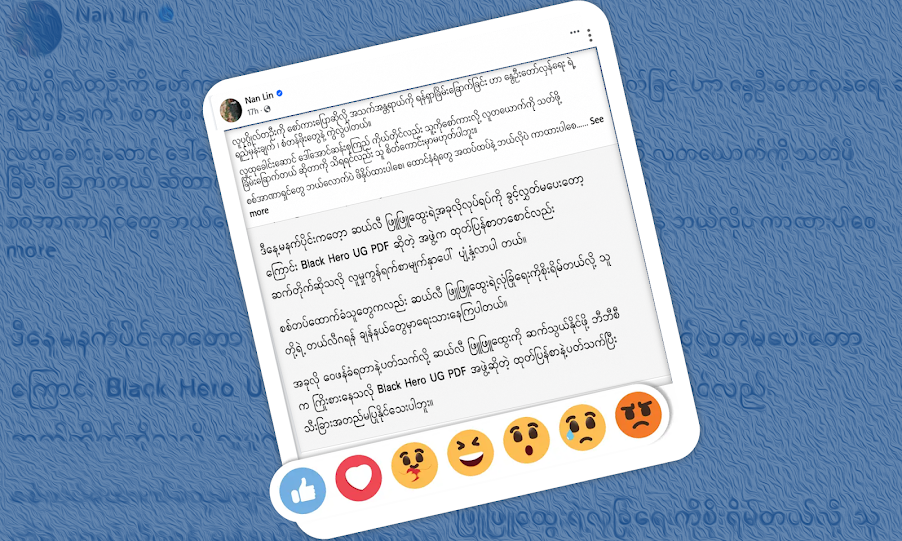Myanmar Spring Chronicle – December 25th Scene
MoeMaKa, December 26, 2024
Killings and the Honor of the Revolution
Recently, a social media controversy has erupted over a promotional video featuring Phyu Phyu Htwe, sparking calls for her to be eliminated. Former student union leader Ko Nan Lin, who is currently engaging in peaceful activism within Myanmar despite the risks of arrest and violence, expressed his disapproval of such calls. He stated on Facebook on the evening of December 25th that these incitements to violence are inconsistent with the principles of the revolution. Even if Phyu Phyu Htwe’s actions were intentional, he argued, it is unacceptable to promote violence against her, emphasizing that even someone like Daw Aung San Suu Kyi, a central figure of the revolution, would never support such behavior.
Ko Nan Lin’s statement highlighted that such threats and incitements are a deviation from the values and goals of the Spring Revolution. However, many critical comments appeared under his post, expressing dissatisfaction with his perspective. Some even suggested that he abandon politics and pursue a monastic life if he insisted on maintaining such a stance.
In his post, Ko Nan Lin stated:
“Any actions or behaviors that deviate from the goals and values of the Spring Revolution do not represent the revolution. Those who engage in such acts are not revolutionaries. This must be clearly understood.”
This triggered responses ranging from disagreement to outright criticism, with some accusing him of being overly idealistic.
Public Reactions and Media Responsibility
Another activist referenced an article published by a media page, lamenting the involvement of media outlets that had previously opposed military dictatorship in actions that now seem to undermine their own cause.
Such incidents raise the question of whether parties, organizations, or individuals leading the fight for democracy are doing enough to prevent calls for violence and threats to human life. Organizations and leaders advocating for democracy and human rights must address these actions and publicly reaffirm their commitment to nonviolence and ethical standards.
The Role of Leadership and Ethical Standards
When controversies arise regarding fundamental values, leaders in politics and human rights advocacy have a duty to step in and guide public discourse. If they fail to provide direction, incitements to violence can lead to real-world consequences.
Ko Nan Lin’s intervention can be seen as an effort to fill a critical gap, advocating for reason and ethics amid a volatile situation. While his tone was calm and respectful, some criticized it as too lenient, even suggesting he should focus on personal reflection rather than political engagement.
Maintaining Revolution’s Honor
The growing perception among some that achieving political success requires cruelty, revenge, or disregard for human rights poses a serious risk to the values of the Spring Revolution. Such views may lead to a loss of international credibility and undermine the revolution’s moral foundation.
Media outlets must also take responsibility by verifying and contextualizing information, ensuring that their reporting does not inadvertently fuel harmful rhetoric or actions.
In conclusion, as the fight for truth, justice, and freedom continues, mutual respect and restraint within the movement are as crucial as the struggle against the dictatorship. Leaders must not only respond to immediate challenges but also foster a long-term culture of ethical and principled resistance.

